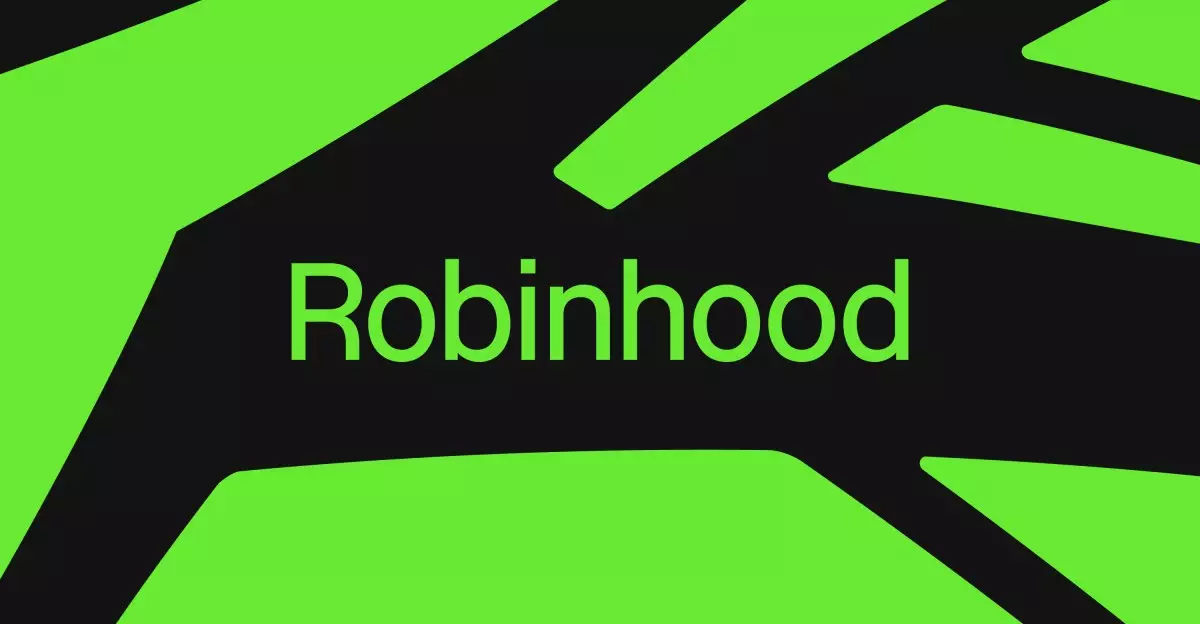Robinhood, widely recognized for democratizing investing through its user-friendly trading app, is poised to make significant strides into the broader financial services sector with its upcoming launch of ‘Robinhood Banking’. This innovative platform, set to debut for Gold subscribers later this year, exemplifies how fintech is reshaping the traditional banking landscape. By seamlessly integrating banking with investment services, Robinhood is not just adding a feature; it is redefining how consumers interact with their finances, ultimately aiming for a holistic financial ecosystem.
A Shift Toward an All-in-One Financial Hub
The announcement of Robinhood Banking represents a clear evolution from its original purpose of facilitating trading. The platform will allow Gold subscribers to open both checking and savings accounts, access their funds, and manage money directly through the Robinhood Credit Card app. This significant expansion into banking suggests an ambitious goal: to transition users from simply executing trades to completely managing their finances within the app. Such a strategy is indicative of a growing trend among fintech firms—becoming a one-stop shop where users can invest, bank, and even manage their finances in a single location. This convenience caters particularly to a younger audience that values efficiency and streamlined services.
The Appeal of High Yields and Innovative Services
One standout feature of Robinhood Banking that is expected to attract users is its impressive 4% annual percentage yield (APY). This yield dwarfs what traditional banks typically offer and represents a compelling incentive for potential subscribers. Additionally, the pass-through insurance provided by Coastal Community Bank, which covers accounts up to $2.5 million, helps alleviate concerns regarding the safety of users’ funds. However, as with any new banking service, due diligence and understanding the nuances of such arrangements remain important for consumers.
Furthermore, the introduction of unique features—such as on-demand delivery of cash—reflects Robinhood’s commitment to innovation. While many traditional banks still rely on brick-and-mortar locations, Robinhood’s online service aims to make accessing cash both convenient and efficient. This focus on immediacy and user-centric services aligns with the preferences of today’s consumers and positions Robinhood favorably within a competitive market.
Redefining Wealth Management
Alongside its banking services, Robinhood plans to launch Robinhood Strategies, a new wealth management tool designed specifically for Gold members. By presenting a mix of single stocks and exchange-traded funds (ETFs), this tool enriches users’ investment experience while maintaining affordability through low management fees. The capped annual fee for wealth management further solidifies Robinhood’s position as a budget-friendly alternative to traditional wealth advisors, who often charge significantly higher fees.
Moreover, the upcoming AI-powered investment tool, Cortex, promises to add another layer of sophistication to investment strategies by providing real-time analyses and trade recommendations tailored to individual users. This initiative reflects Robinhood’s commitment to empowering users with valuable information, transforming average consumers into informed investors.
Navigating Challenges Ahead
Despite its exciting prospects, Robinhood’s journey into banking and wealth management will not be without challenges. As it positions itself against established financial institutions that have deeply rooted practices and a loyal customer base, Robinhood will need to navigate regulatory hurdles while ensuring top-notch security and customer satisfaction. User trust will be paramount; any misstep in managing sensitive financial information could cost the company dearly in reputation.
Additionally, Robinhood’s transition from a trading platform to a comprehensive financial service provider will require them to maintain the user engagement that propelled their initial success. Finding the right balance between financial growth and providing value to subscribers will test the company’s capabilities.
While Robinhood Banking holds transformative potential for the fintech landscape, it is just the beginning of a much larger narrative. As Robinhood broadens its offerings and evolves into a full-fledged financial institution, it will continue to influence how consumers perceive and engage with their finances in the digital age.

